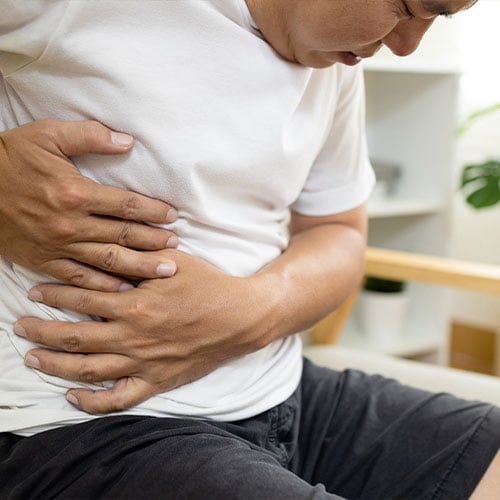Your body is home to many organs, like your liver, that play multiple roles in maintaining good health. Your liver performs various tasks such as storing iron, producing proteins for the body and bile needed for digestion, creating substances that help with blood clotting and wound healing, and transforming nutrients into energy.
However, one of the liver’s most important functions would be its ability to eliminate poisons, toxins, and bacteria from your blood, while improving immune system health, enabling your body to withstand infections and illnesses better because of these positive impacts linked to your liver.
Unfortunately though, there are certain factors that can disrupt your liver’s function as time goes by. This can put you at risk for fatty liver disease. As early as now, see how this health issue can affect you and learn some of the most ideal ways to maintain good liver health.
A Quick Rundown on Fatty Liver Disease
Fatty liver disease is a group of diseases wherein fat build-up is seen on your liver. This particular health issue can be classified into two types:
- Nonalcoholic fatty liver disease (NAFLD) or hepatic steatosis that can further be divided into two types of health issues:
- “Simple” fatty liver: People diagnosed with this condition have fat build-up in the liver, but without additional inflammation or damage to liver cells.
- Nonalcoholic steatohepatitis (NASH): This means that the liver has accumulated fat and exhibits inflammation and liver cell damage
- Alcoholic fatty liver disease or alcoholic steatohepatitis, wherein excess alcohol consumption causes fat build-up in the liver.
If left unaddressed, inflammation of the liver can damage its tissue in a stage called steatohepatitis. Once the liver is damaged, it can progress to a stage called fibrosis, characterized by the appearance of scar tissue. This type of tissue can then replace previously existing tissue in what is known as liver cirrhosis, which can then progress to either liver failure or liver cancer.
Who Is at Risk for Fatty Liver Disease?
The following factors can put you at risk for fatty liver disease:
- Being either overweight or obese
- Being diagnosed with Type 2 diabetes or prediabetes, metabolic disorders, or an infection like hepatitis B or C
- High blood pressure levels
- High amounts of triglycerides or LDL (bad cholesterol) in the blood
- Age (fatty liver disease is common among middle-aged people or older)
- Drugs such as corticosteroids and cancer medication
- Rapid weight loss where a person loses 5% of his or her body weight (10 pounds or more) within six to 12 months even when there’s no effort or intent to lose weight
- Prior exposure to toxins microcystins (MCs), disinfection by-products (DBPs), heavy metals (HMs), dioxins, polychlorinated biphenyls (PCBs), and carbon tetrachloride that may be found in small amounts in water sources, industrial chemicals. chlorinated or brominated water, commercial paints, or adhesives
One aspect of fatty liver disease you should be concerned about is that most cases are asymptomatic and may not be detected unless a person undergoes a check-up. In some cases, patients with fatty liver may experience abdominal pain (particularly on the upper right section), nausea, poor appetite or weight loss, jaundice (yellowing of the skin and whites in your eyes), edema (swollen abdomen or legs), weakness, tiredness or mental confusion.
Try These Tips to Take Care of Your Liver Better
If you are on a mission to prevent fatty liver disease and take better care of your liver, you can start by making significant changes to your lifestyle. Authors of a 2021 study highlighted that weight loss is one of the most effective ways to help improve liver health, as it may lead to better outcomes among patients with fatty liver disease.
Strive to consume a nutrient-rich and balanced diet, drink lots of water, and try to get as much exercise as you can. These measures can help you reach a healthy weight and decrease your risk for fatty liver. More importantly, you can also ask your doctor about the ideal diet for your current health status, or if there are restrictions to be aware of.
Aside from making an effort to lose weight, two other strategies that may help reduce your risk for fatty liver disease include:
- Significantly reducing alcohol intake: Drinking less alcohol lowers the chances of fat build-up in the liver.
- Addressing health issues that can raise your risk for fatty liver disease: As mentioned earlier, health problems such as diabetes, hypertension, or high triglyceride levels can significantly harm your liver and contribute to the risk of fatty liver disease. By targeting these issues first, you can reduce the risk for complications that may ultimately affect liver health.
If you have any of the mentioned health problems and want to protect your liver, ask your doctor about medications like glimepiride, metformin or atorvastatin for diabetes, atorvastatin as well for high cholesterol levels, or losartan for high blood pressure levels. Although these medicines do not directly address fatty liver, they were found to be effective in addressing health problems that are known to raise your risk for it.
Moreover, as with prescription medications, make sure these are always taken under the supervision of your doctor.
If you are interested in knowing more about your liver’s current status, feel free to consult your doctor today. Checking for signs of fatty liver disease at its earliest stages can be crucial in preventing any of the complications linked to this health issue.
References:
https://medlineplus.gov/fattyliverdisease.html
https://my.clevelandclinic.org/health/diseases/15831-fatty-liver-disease
https://my.clevelandclinic.org/health/diseases/17770-unexplained-weight-loss
https://www.hopkinsmedicine.org/health/conditions-and-diseases/nonalcoholic-fatty-liver-disease
https://www.betterhealth.vic.gov.au/health/conditionsandtreatments/liver-fatty-liver-disease
https://www.healthline.com/health/fatty-liver
https://www.mayoclinic.org/diseases-conditions/toxic-hepatitis/symptoms-causes/syc-20352202
https://www.sciencedirect.com/science/article/pii/S016041202100180X
https://www.cdc.gov/biomonitoring/THM-DBP_FactSheet.html
https://www.edf.org/health/carbon-tetrachloride
https://dom-pubs.onlinelibrary.wiley.com/doi/10.1111/dom.14569








